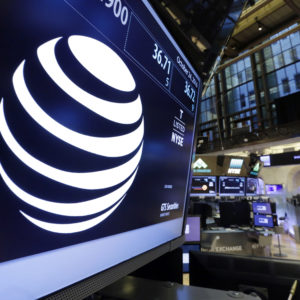A study showing zero impact on internet provider investment by net neutrality rules relied on “corrupted” and “made up data,” according to one economist.
The study by the Internet Association, a trade group representing pro-net neutrality companies like Amazon, Google, Netflix, and others found “[n]o negative impact on telecom infrastructure investment, broadband infrastructure investment, or cable infrastructure investment” since the Federal Communications Commission passed the rules in 2015.
Those regulations prohibit internet service providers (ISPs) like AT&T and Comcast from blocking, throttling, and prioritizing web traffic. Conservatives and the industry say the authority the FCC used to pass them — Title II of the Communications Act — is scaring investors away from ISPs and slowing network growth, since Title II could theoretically be used to regulate prices.
Whether the rules are hurting or promoting investment has become the crux of the debate as FCC Republicans and the Trump administration consider repealing the rules. While proponents claim investment is up and opponents say it’s down, the Internet Association study by the group’s chief economist Christopher Hooton is unique in that it claims the regulations have no impact at all.
Hooton’s study also tries to debunk another by economist George Ford of the center-right think tank Phoenix Center showing a drop in investment. Ford later traded barbs with Hooton in a follow-up study, pointing to Hooton’s own admission that he used a “flawed approach” by forecasting investment from 2014 into 2020. Ford said the calculation was in essence “making up” data.
Ford followed up his criticism this week with a second pass at the Internet Association study, and found more examples of inaccurate and fabricated data.
Hooton, in his study, cites data from USTelecom, a trade group made up of executives from companies like AT&T and Verizon, showing U.S. broadband investment from 1996 to 2015. But the data doesn’t match USTelecom’s, according to Ford.
“Dr. Hooton’s analysis of USTelecom’s data on U.S. broadband investment for years 1996 through 2015 employs data that have been corrupted in some way,” Ford wrote. “Dr. Hooton’s results are not consistent with the actual USTelecom data, a fact easily demonstrated.”
Using USTelecom’s original data set with Hooton’s own models, Ford (after “adjusting for inflation and correcting . . . improper definitions of investment”) shows investment down an average of 19 percent since the FCC began debating net neutrality rules in 2010.
Ford also points out changes Hooton made to data on cable industry broadband investment by financial firm SNL Kagan.
“Dr. Hooton fabricates (via interpolation) three-fourths of the data he analyzes from SNL Kagan for cable industry broadband investment,” the study reads. “These data also measure cumulative investment, not annual investment.”
Cumulative investment, Ford notes, is always larger in the future than the past — important because Hooton’s study looks as far into the future as 2020 to draw his conclusions.
“Shockingly, 16 of his 21 data points are fabricated by interpolation,” Ford continues, “so Dr. Hooton has again simply made up data.”
After switching from cumulative to annual investment data and adjusting for inflation, Ford shows cable industry investment down 11 percent since 2015.
The study goes on to note the “only remaining ‘positive’ effect” of the Internet Association study “is derived from investments in roads, canals, bridges, and other transportation infrastructure,” which “has no bearing on net neutrality.”
“While Dr. Hooton deserves credit for attempting to up the ante on the level of analysis by pro-net neutrality advocacy, the errors found in Dr. Hooton’s work are unacceptably numerous and consequential,” Ford said. “No credible advocate would offer the Internet Association’s paper as evidence of anything, with the exception of perhaps a case study on how not to do statistical analysis.”
The Internet Association study has been featured in recent discussions with Democratic FCC Commissioner Mignon Clyburn, who voted for the rules. It’s also been cited by Democrats in Congress supportive of net neutrality like Minnesota Sen. Al Franken.
In January former FCC Chairman Tom Wheeler, the architect of the rules, argued internet provider revenue and stock prices have gone up since the rules were passed, along with venture capital investment in internet businesses — up 35 percent since 2015.
AT&T reportedly told President Donald Trump in January it’s been the country’s leading investor of capital for the last five years, and announced plans in 2016 to deploy roughly 250 percent of the capacity it did in 2013-2014 for 75 percent of the cost.

